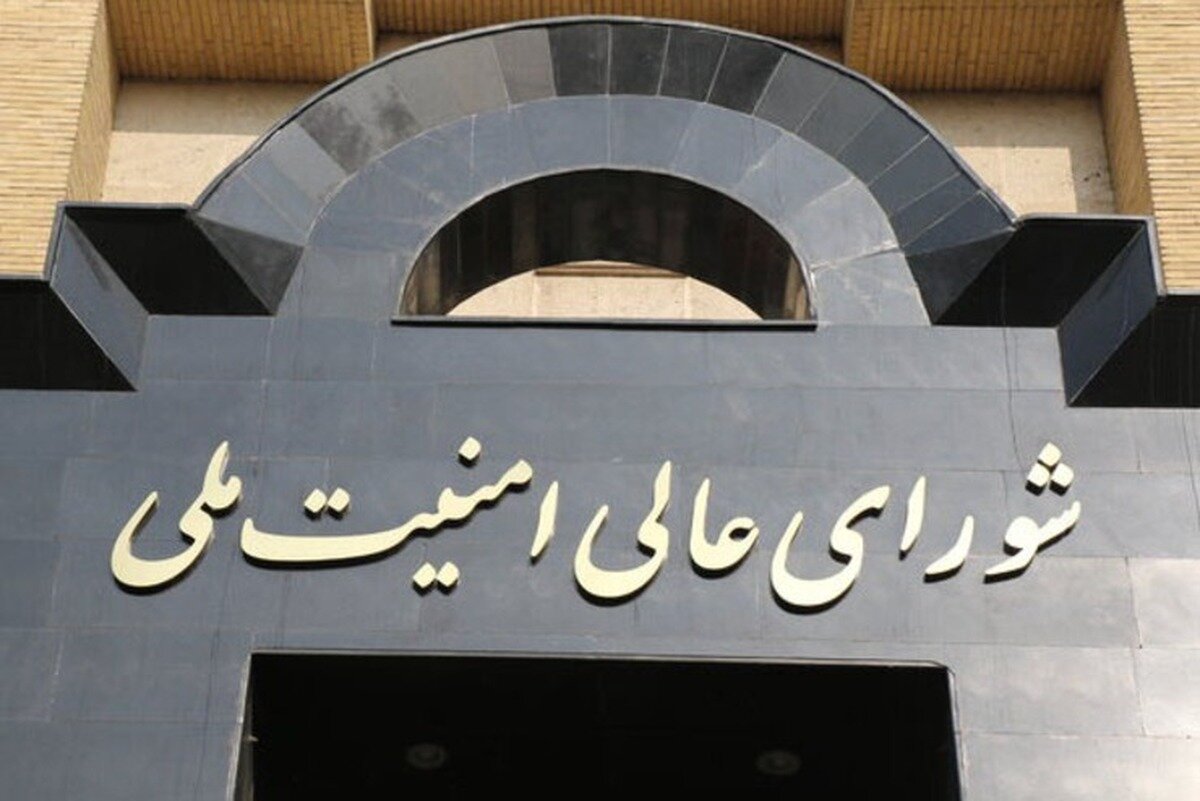New Defense Council in works as Iran's officials affirm readiness against Israel: reports

TEHRAN – Tehran is set to activate a new "Supreme Defense Council" as part of significant structural changes within the Supreme National Security Council (SNSC), according to reports from Iran's Fars and Tasnim news agencies published Friday and Saturday.
The council, a long-dormant constitutional provision, is expected to play a pivotal role in the formulation of strategic defense policies.
Fars News reported that "informed sources" confirmed the creation of the Defense Council following the finalization of structural changes within the SNSC.
It described the new body as having "strategic missions in the field of the country's defense policies," adding that its structure "will be finalized soon" and represents "part of the new governance arrangement in the field of defense and security."
Tasnim provided further detail on Saturday, citing Article 176 of the Iranian Constitution. The article explicitly states that the SNSC "shall form subordinate councils, such as a Defense Council and a National Security Council, commensurate with its duties."
Tasnim reported that the structure of the Defense Council itself was approved "a few days ago" based on this constitutional authority.
According to their sources, the President will chair the council, with a military figure likely appointed by the President as its secretary.
Key objectives reportedly include "supporting the comprehensive strengthening of the country's defense capability," "increasing the speed of decision-making in the country's defense sector," and incorporating additional military commanders beyond the Chief of the Armed Forces General Staff (who is already on the SNSC).
Tasnim's report also listed potential members, suggesting the council would include the heads of the three branches of government, two representatives of the Leader of the Islamic Revolution within the SNSC, the Minister of Intelligence, the Chief of the Armed Forces General Staff, the Commander-in-Chief of the Islamic Revolution Guard Corps (IRGC), the Commander-in-Chief of the Army (Artesh), and the Commander of the Central Khatam al-Anbiya Headquarters.
Historically, a Supreme Defense Council operated during the Iran-Iraq War under Article 110 of the Constitution, with many of its duties later assumed by the post-constitutional revision SNSC under Article 176.
The formation of the Defense Council, as reported, appears designed to streamline high-level defense decision-making within Iran's constitutional framework, reflecting lessons learned from the 12-day U.S.-Israeli war on Iran and a leadership consensus on maintaining the highest levels of military readiness against perceived enduring threats.
Iran-Israel ceasefire believed to be feeble
The development comes amidst heightened regional tensions and a resolute distrust within Iran's leadership toward the Israeli regime’s ceasefire claims, which are widely viewed as deceptive and unreliable.
Armed Forces Chief of Staff Major General Abdolrahim Mousavi has emphasized Iran's defensive posture and preparedness.
"We were not the initiators of war, but we responded to the aggressor with full force," General Mousavi stated, adding a pointed warning: "Since we have complete doubts about the enemy's adherence to its commitments, including the ceasefire, we are prepared to deliver a firm response in case of repeated aggression."
Echoing this stance, President Masoud Pezeshkian has explicitly rejected any trust in the current ceasefire. "We have no confidence in the ceasefire," President Pezeshkian declared.
"At any moment, it is likely they [the Israeli regime] will again covet attacking us, and of course, our armed forces are prepared to confront any level of aggression."
The Iran-Israel war, widely referred to as the "12-Day War," erupted after an unprovoked Israeli attack against Iran on June 13.
Iranian reports state that over 1,025 Iranians, including several high-ranking commanders, were martyred in Israeli strikes. Iran's decisive response, Operation "True Promise 3," involved a massive barrage of missiles and drones that penetrated Israeli defenses, causing significant damage to military and strategic sites.
Analysts suggest the tangible impact of Iran's retaliation, demonstrating its advanced missile capabilities and regional reach, was a key factor compelling the Israeli regime to seek an urgent halt to the fighting through international intermediaries.
‘Three-phase preparedness’
Speaking at the 97th meeting of the National Passive Defense Committee on Saturday, General Mousavi elaborated on the Armed Forces' continuous readiness strategy. During a separate event, he outlined a structured approach ensuring constant vigilance.
"The Armed Forces today pursue distinct preparedness programs across three timeframes: short-term, medium-term, and long-term," General Mousavi affirmed.
He stressed the necessity of adopting the same approach for enhancing readiness within the civilian sector, particularly regarding the immunization of critical service infrastructure vital to the public.
The meeting focused on evaluating the performance of executive agencies in the field of passive defense, especially during the recent conflict with the Israeli regime.
Attendees analyzed strengths, weaknesses, and the enemy's threat patterns to devise solutions for enhancing the resilience of essential national infrastructure services.
Key outcomes included the approval of a national directive for public passive defense education, outlining duties for cultural and educational bodies, and the ratification of guidelines governing urban shelters, temporary housing, and emergency accommodation, defining responsibilities for relevant executive agencies.
Committee members emphasized the need for strict adherence to these directives by all responsible entities.
Leave a Comment